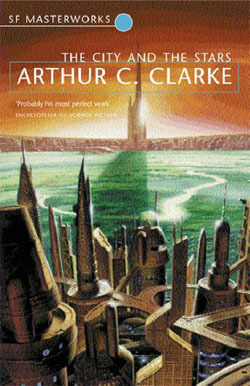
Clarke's masterful evocation of the far future of humanity, considered his finest novel. Men had built cities before, but never such a city as Diaspar. For millennia its protective dome shut out the creeping decay and danger of the world outside. Once, it held powers that rule the stars. But then, as legend has it, the invaders came, driving humanity into this last refuge. It takes one man, a Unique, to break through Diaspar's stifling inertia, to smash the legend and discover the true nature of the Invaders.
Author

Sir Arthur Charles Clarke was one of the most important and influential figures in 20th century science fiction. He spent the first half of his life in England, where he served in World War Two as a radar operator, before emigrating to Ceylon in 1956. He is best known for the novel and movie 2001: A Space Odyssey, which he co-created with the assistance of Stanley Kubrick. Clarke was a graduate of King's College, London where he obtained First Class Honours in Physics and Mathematics. He is past Chairman of the British Interplanetary Society, a member of the Academy of Astronautics, the Royal Astronomical Society, and many other scientific organizations. Author of over fifty books, his numerous awards include the 1961 Kalinga Prize, the AAAS-Westinghouse science writing prize, the Bradford Washburn Award, and the John W. Campbell Award for his novel Rendezvous With Rama. Clarke also won the Nebula Award of the Science Fiction Writers of America in 1972, 1974 and 1979, the Hugo Award of the World Science Fiction Convention in 1974 and 1980, and in 1986 became Grand Master of the Science Fiction Writers of America. He was awarded the CBE in 1989.